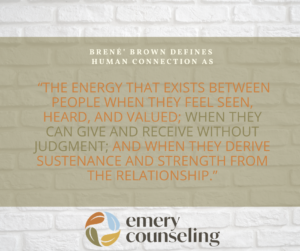I think it’s safe to say we’re all weary of hearing the words UNPRECEDENTED and NEW NORMAL. In this transitional season of coronavirus, the abrupt involuntary changes of physical distancing, restricting our travel, wearing masks, and self-quarantining have triggered varying responses in the people around us.
We see anxiety or anticipation, anger or excitement, reaching out or isolating, depending on our personal strategies which developed to survive earlier trauma.
These survival strategies have activated now due to the demands for involuntary change each of us is handling.
A composer intentionally incorporating an abrupt key change in a song, a writer starting a new novel, a recent graduate moving cross-country, an employee becoming a partner in the business… All are shifting voluntarily, on their own initiative, with anticipation. Human brains are designed to notice patterns and prefer those that are familiar. Therefore, anticipation is usually blended with the uncomfortable possibility of noncongruent expectations, miscommunication, and relational disconnect. Any shift from the old “normal” of the past to the new “normal” of the future activates the survival core of the brain. Even in experiences as rich as entering a deeper layer of relationship or birthing a long-awaited baby, the process of transition is a passage from clearly defined to unknown.
When the transition is unexpected, however, even the combination or order of factors can be jarring.
An interrupted conversation; a dislocated shoulder; a wheel knocked out of alignment; eviction; disrupted internet connection; sudden illness; a crucial tool that breaks; bankruptcy; disconnected phone service; death. Even reading these examples as written may trigger stress, simply because they are not ordered in any way.
What do they all have in common? Each one requires a response to change, a process of reconciling new experiences, previously unknown facts, and fresh understanding with our prior circumstances, learning, and values. Reconciliation brings dissonant details into smoother function and closer match with the intended purpose and design.
In an engineering lab, woodworking shop, or mechanic’s garage, craftsmen may need to file, sand, or plane the joint between two pieces of a structure, smoothing and reconciling odd angles. In an accounting office, reconciling means labeling every transaction as a debit or credit, then assuring that all the accounts balance. Similarly, in a courtroom, various actions are judged to be legal or illegal, then a judge or jury decides how to best reconcile circumstances and relationships with what they determine is fair.
Is reconciliation this straightforward in relationship?
Some transitional seasons in relationship can be predicted. Age-related physical changes, shifts in family structure, and life passages in vocation can be googled, studied via podcast, or surveyed on Facebook. However, even more disconcerting are the unexpected shifts resulting from violations of the edges of our identity, our self-defined boundaries of safety. Adjustments to these violations often bring us into a counselor’s office. The culprit could be unacknowledged attitudes.
Underground rivers of greed, self-condemnation, envy, superiority, or suspicion in our hearts accumulate beliefs with them as we rush downstream in life. Assumed to be true, fair, or right, these attitudes become destructive debris that wash along into our interactions with other people. Words and actions flowing from these attitudes and beliefs result in criticism, gossip, and slander; harsh, divisive, and judgmental people-labeling; neglect, manipulation, and abuse. Whether they flow from deliberate planning or unintentional blunders, such disruptions in relationship call for reconciliation.
Brené’ Brown defines human connection as “the energy that exists between people when they feel seen, heard, and valued; when they can give and receive without judgment; and when they derive sustenance and strength from the relationship.”

Human beings are hardwired for connection from the moment life begins. We require both physical nurture and emotional connection to thrive, both before and after birth. The kind and quality of these early connections shape the template used by each of us to define healthy relationship later in life. If we all have damaged templates, how can our damaged hearts and relationships ever be reconciled?



